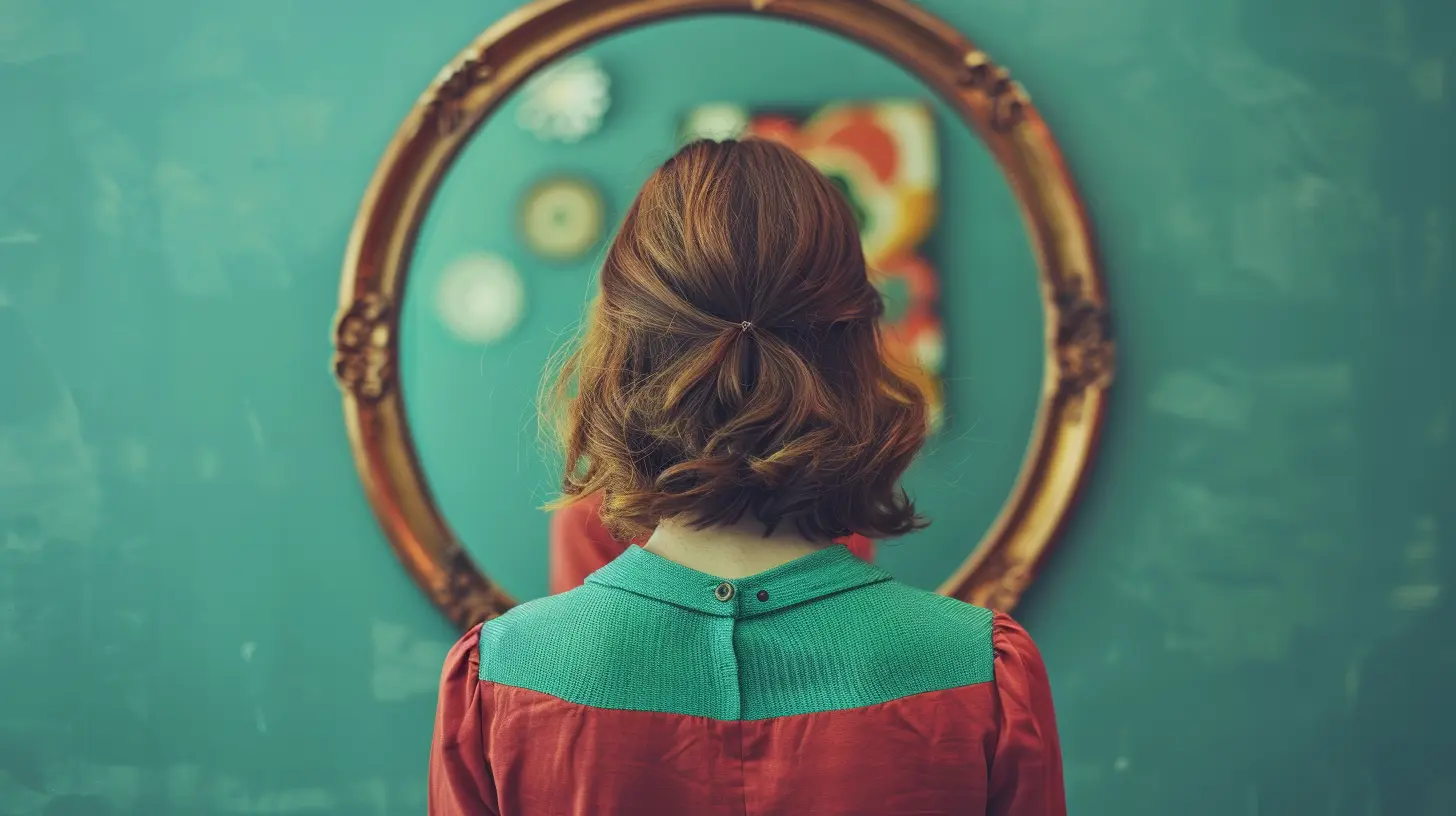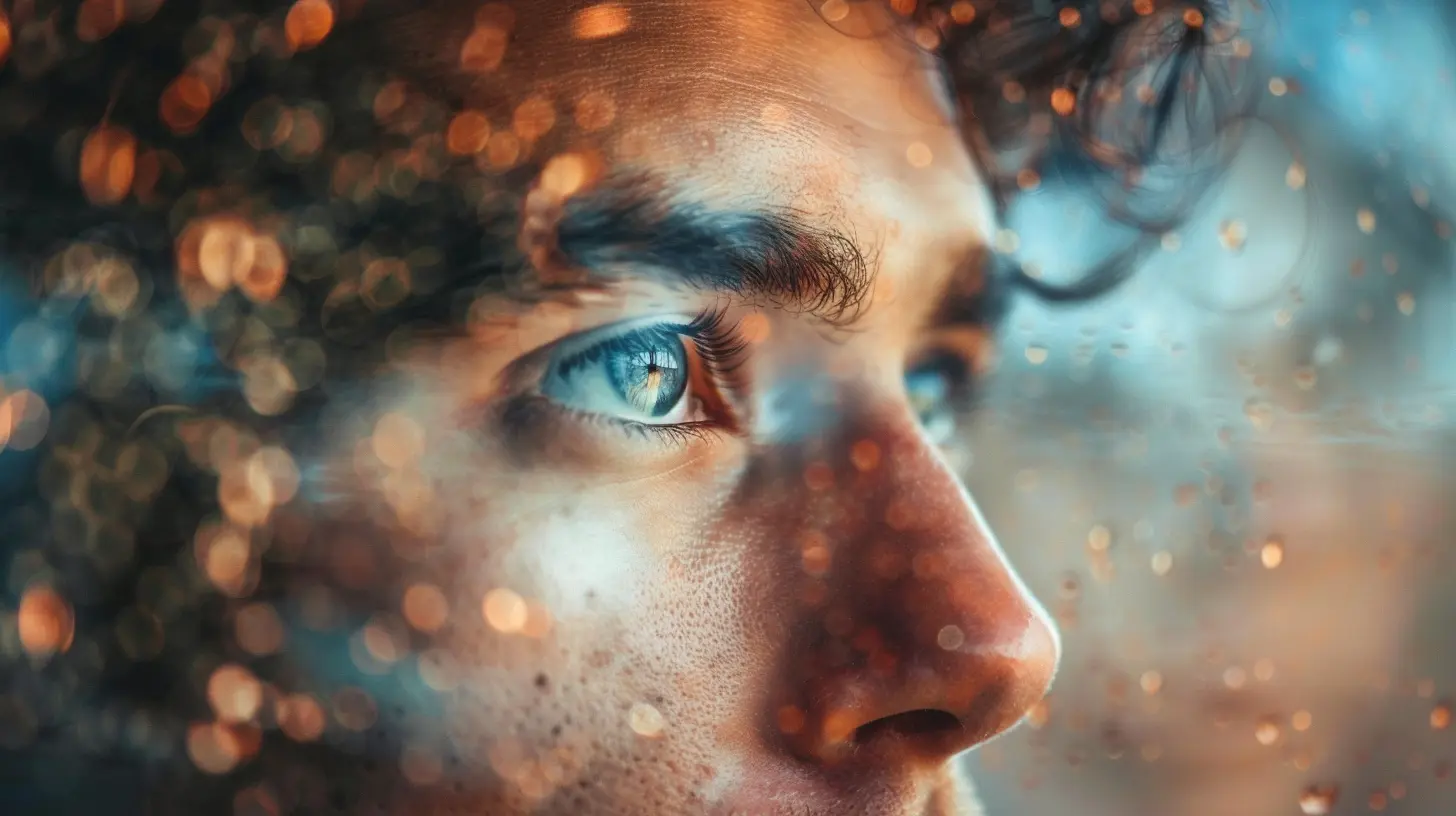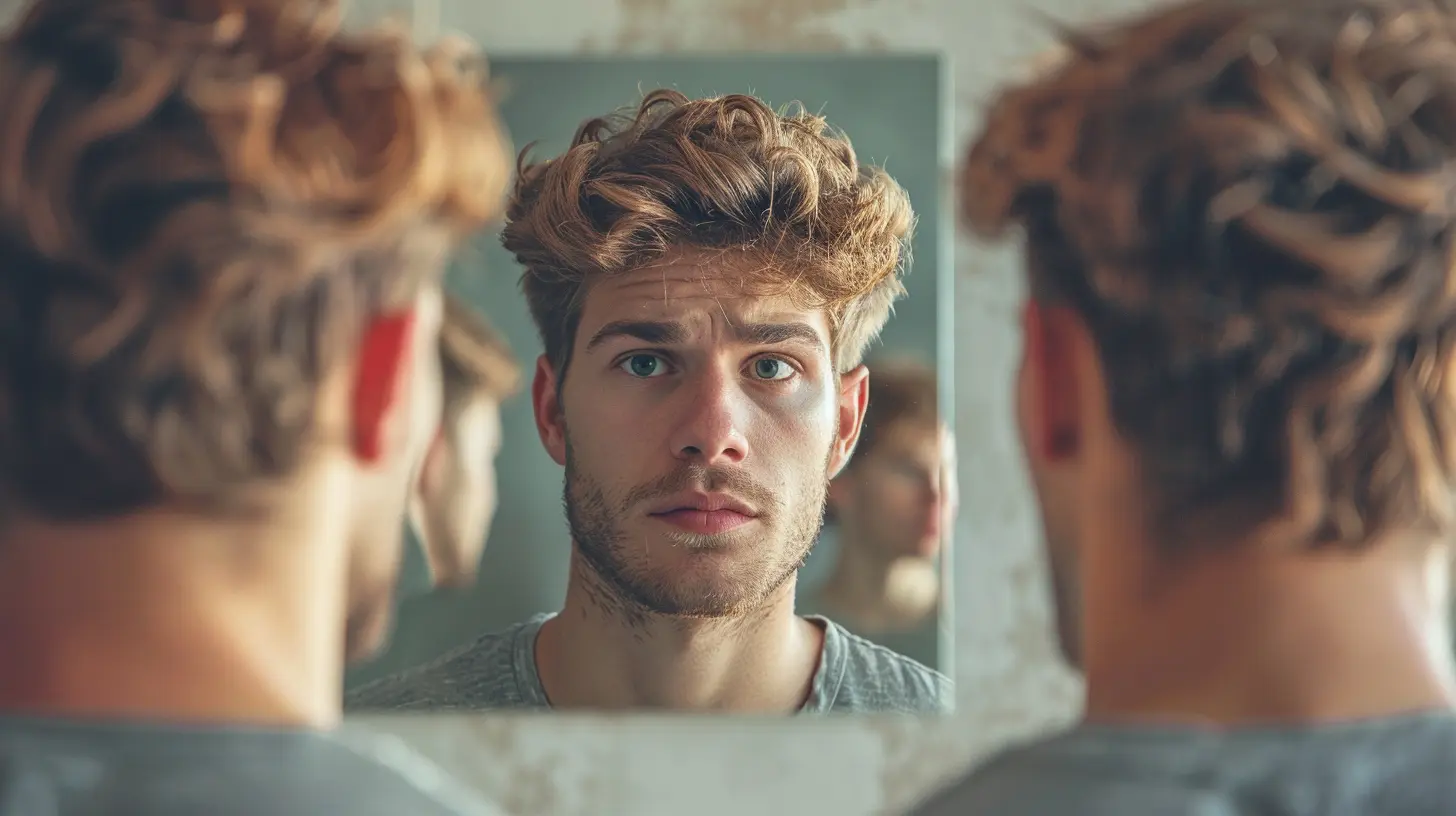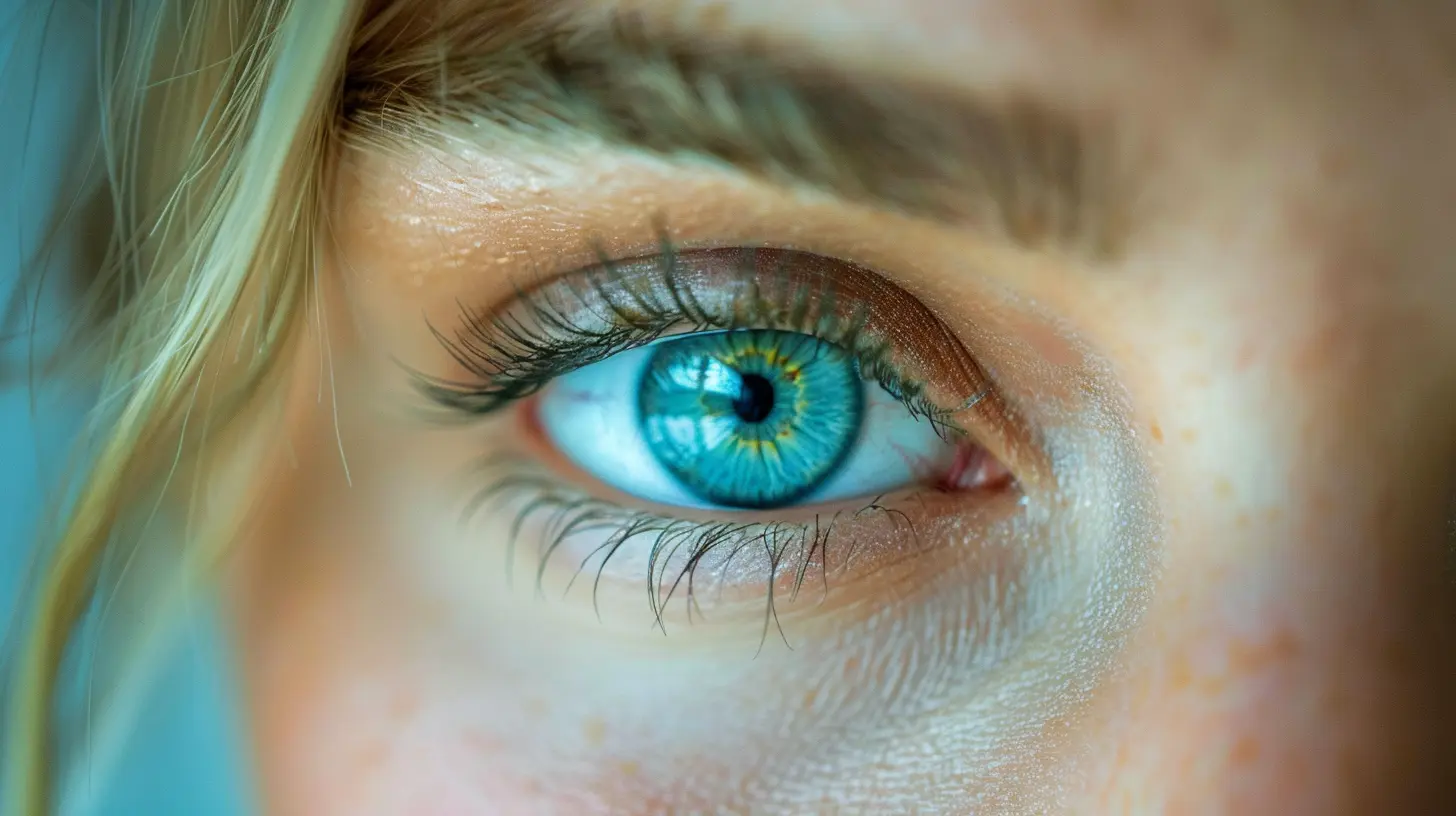Body Image and Self-Esteem: The Key Differences and How to Work on Both
13 May 2025
We live in a world where appearance often takes center stage. Social media, advertisements, and beauty standards can make it easy to fall into the trap of comparing ourselves to others. This is where body image and self-esteem come into play. But while they might seem like the same thing, they’re actually quite different.
So, what exactly sets them apart? More importantly, how can we work on both to feel better about ourselves? Let’s dive in.

What Is Body Image?
Body image is how you perceive your physical appearance—what you think and feel about the way you look. It’s shaped by personal experiences, cultural influences, and the messages we absorb from society.There are four main components of body image:
1. Perceptual Body Image – How you see yourself when you look in the mirror. Sometimes, this can be distorted and not an accurate reflection of reality.
2. Affective Body Image – The feelings you have about your body, whether positive or negative.
3. Cognitive Body Image – The thoughts and beliefs about your body’s appearance.
4. Behavioral Body Image – The actions you take as a result of your body image, like excessive exercise, avoiding mirrors, or wearing certain types of clothing.
A positive body image means accepting and appreciating your body for what it is. It doesn't mean thinking your body is perfect, but rather, recognizing its strengths and treating it with kindness.
How Negative Body Image Develops
Negative body image doesn’t just appear out of nowhere. It often forms due to:- Media Influence – Constant exposure to photoshopped images and unrealistic beauty standards.
- Comparison Trap – Comparing yourself to others, whether it’s celebrities, influencers, or even friends.
- Past Experiences – Hurtful comments, bullying, or criticism about your body can leave a lasting impact.
- Cultural and Societal Expectations – Societies often promote certain body types as the "ideal," making it tough for anyone who doesn’t fit the mold. 
What Is Self-Esteem?
Now, let’s talk about self-esteem. Unlike body image, self-esteem isn’t just about appearance—it’s about your overall sense of self-worth. It’s how much value and respect you place on yourself as a person.Self-esteem is influenced by:
- Your Achievements – When you succeed in life, whether personally or professionally, your self-esteem tends to rise.
- Self-Talk – The way you speak to yourself, whether positive or negative, plays a massive role.
- Support Systems – Strong relationships and a sense of belonging can boost self-esteem.
- Past Experiences – Just like body image, past experiences (both good and bad) shape how you view yourself.
Someone with high self-esteem generally feels confident, capable, and worthy of love and respect. On the other hand, low self-esteem might make you second-guess yourself, fear failure, or struggle with self-doubt.
How Negative Self-Esteem Develops
Low self-esteem can stem from several factors, including:- Childhood Experiences – If you grew up in a critical environment, you might struggle with self-worth.
- Negative Relationships – Toxic friendships or relationships can make you feel unworthy.
- Failure and Rejection – Repeated setbacks can take a toll on how you see yourself.
- Comparing Yourself to Others – Just like with body image, constantly measuring yourself against others can lower your self-esteem. 
The Key Differences Between Body Image and Self-Esteem
While body image and self-esteem are related, they are not the same. Here’s a quick breakdown:| Feature | Body Image | Self-Esteem |
|-----------------|--------------------------------------------------|--------------------------------------------------|
| Definition | How you perceive your physical appearance. | Your overall sense of self-worth. |
| Influence | Media, societal standards, personal experiences. | Achievements, relationships, self-talk. |
| Focus | Physical looks and how you feel about your body. | Self-perception beyond physical appearance. |
| Behavioral Impact | May lead to eating disorders, excessive dieting. | Can cause social withdrawal, self-doubt. |
In simpler terms, body image is a piece of the puzzle, while self-esteem is the bigger picture. You can have a great body image but still struggle with self-esteem, and vice versa. 
How to Improve Both Body Image and Self-Esteem
Now that we know the differences, let’s focus on what really matters—improving both to build a healthier relationship with yourself.1. Challenge Negative Thoughts
Your inner critic can be your worst enemy. Pay attention to the way you talk to yourself. If you catch yourself thinking, “I hate how I look” or “I’m not good enough”, stop and reframe that thought.Instead of saying, “I look terrible today”, try “I am more than my appearance, and I deserve kindness.” It may feel silly at first, but the more you practice, the more natural it becomes.
2. Detox Your Social Media
Social media can either lift you up or break you down. If following certain influencers or celebrities makes you feel inadequate, unfollow them. Seek out accounts that promote body positivity, self-love, and real, unfiltered life moments.3. Focus on What Your Body Can Do
Instead of just thinking about how your body looks, shift your focus to what it can do. Celebrate your body for its strength, endurance, and resilience. Maybe it helps you dance, run, hug your loved ones, or experience the world—those things matter more than aesthetics.4. Surround Yourself with Positivity
The people around you can either fuel your insecurities or build you up. Choose to be around those who encourage and support you. If someone is constantly making comments about your body or criticizing you, it might be time to set boundaries.5. Practice Self-Care
Self-care isn’t just bubble baths and face masks (although those are nice, too). It’s about treating yourself with respect. Eat nourishing foods, move your body in ways you enjoy, get enough sleep, and take time for yourself.6. Stop Comparing Yourself to Others
Comparison is a confidence killer. There’s always going to be someone who you think is smarter, more attractive, or more successful. But guess what? They’re probably comparing themselves to someone else, too.Your journey is unique. The only person you should try to be better than is the person you were yesterday.
7. Seek Professional Help If Needed
If negative body image or low self-esteem is affecting your daily life, it might be time to seek professional support. Therapists, counselors, and coaches can help you navigate these challenges and develop healthier ways of thinking.Final Thoughts
Body image and self-esteem are deeply connected, yet they serve different roles in shaping how we see ourselves. While body image focuses on your appearance, self-esteem is about knowing your worth beyond looks.Both can be worked on, and both deserve attention. Be kind to yourself. Speak to yourself the way you would speak to a friend. Because at the end of the day, you are more than just a reflection in a mirror—you are a person worthy of love and respect.
all images in this post were generated using AI tools
Category:
Body ImageAuthor:

Eliana Burton
Discussion
rate this article
4 comments
Katie Potter
This article effectively distinguishes between body image and self-esteem, highlighting their interconnection. Practical strategies for improvement are essential for fostering a healthier self-perception and overall well-being.
May 17, 2025 at 3:50 AM

Eliana Burton
Thank you for your thoughtful comment! I'm glad you found the distinction and practical strategies helpful for fostering a healthier self-perception.
Wendy Morris
This article succinctly highlights the distinct yet interconnected nature of body image and self-esteem, offering valuable insights and practical strategies for fostering a healthier self-perception and confidence. A must-read!
May 16, 2025 at 4:52 AM

Eliana Burton
Thank you for your kind words! I'm glad you found the article insightful and helpful.
Etta McKibben
Ah, body image and self-esteem, the dynamic duo of our inner critics! They often argue over who gets the spotlight, but remember: a healthy self-esteem isn't just about looking good—it's about feeling fabulous even in your favorite sweatpants. Cheers to loving ourselves, flaws and all!
May 15, 2025 at 2:59 PM

Eliana Burton
Absolutely! Embracing our flaws and finding beauty in comfort is essential for true self-esteem. Cheers to self-love!
Ivory Hodge
Ah yes, because who doesn’t love a good existential crisis mixed with a side of self-doubt? Let’s dive right in!
May 13, 2025 at 4:13 AM

Eliana Burton
I hear you! Navigating body image and self-esteem can definitely stir up those feelings. But understanding the differences is a crucial step towards growth. Let’s explore together!



